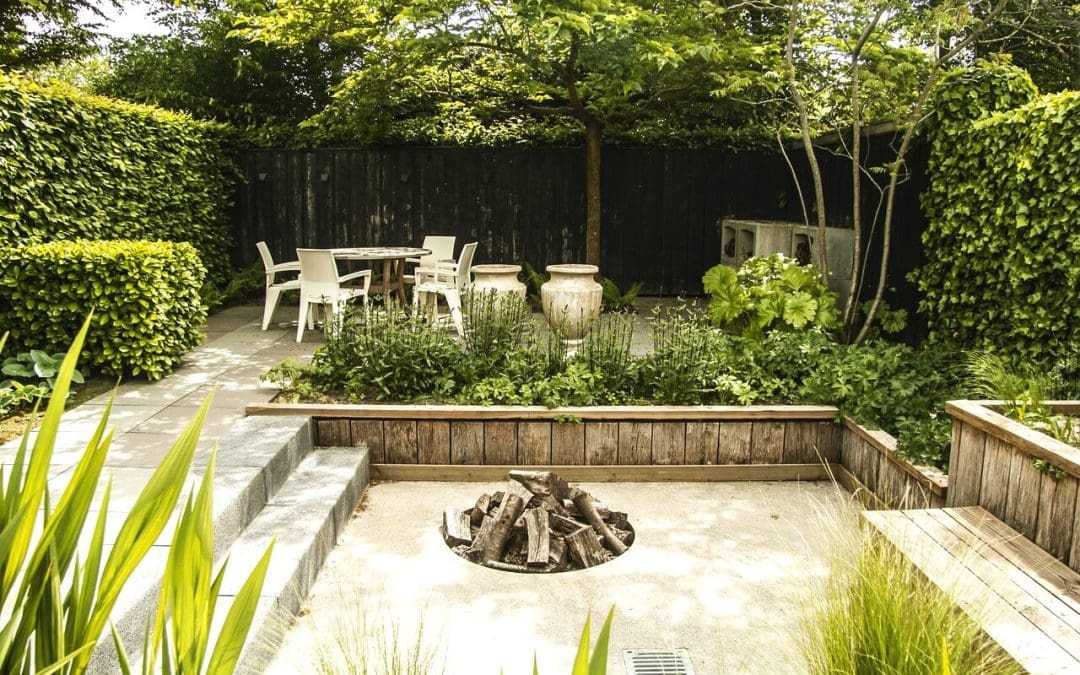As homeowners, we enjoy outdoor spaces for relaxation, entertaining, and connecting with nature. However, achieving privacy in these areas can sometimes be challenging, especially in densely populated neighborhoods or urban settings. Fortunately, there are plenty of creative solutions to enhance privacy without sacrificing the beauty and enjoyment of your deck, porch, or patio. Here are a few helpful tips and tricks to create privacy for outdoor living spaces while maximizing their functionality and appeal.
Boost Privacy for Outdoor Living Spaces
Install Privacy Screens
Privacy screens are versatile solutions you can customize to suit your needs. Whether you prefer a permanent installation or a flexible option, plenty of choices are available. Install a trellis or lattice panel and plant climbing vines or hanging plants to create a natural barrier. You’ll also enjoy the greenery in your outdoor space. Alternatively, a retractable screen or outdoor curtains offer temporary privacy as needed while allowing for open-air enjoyment on sunny days.
Build a Living Wall to Create Privacy for Outdoor Living Spaces
Living walls (also known as vertical gardens or green walls) are excellent options to add privacy and visual interest to your outdoor space. Create a lush backdrop for your deck or patio by covering a wall or fence with various plants and foliage. You’ll screen out neighboring views, improve air quality, and promote biodiversity. Choose low-maintenance plants such as succulents, ferns, and trailing vines that thrive in your climate and require minimal care.
Use Outdoor Furniture
Strategically placed outdoor furniture helps create a sense of privacy on your deck, porch, or patio. Arrange seating areas to maximize privacy from neighboring properties or busy streets. You might also include tall planters or decorative screens around the seating area to create a cozy nook that feels secluded and inviting.
Add Decorative Fencing to Create Privacy for Outdoor Living Spaces
Decorative fencing offers a stylish and functional way to create privacy in your outdoor space. Choose fencing materials such as bamboo, cedar, or wrought iron that complement your home’s architecture and landscaping. Alternatively, opt for decorative partitions made of wood, metal, or composite materials to match your outdoor decor.
Create Natural Barriers
Take advantage of existing natural features or install new ones to enhance privacy for your patio or porch. Plant tall hedges, shrubs, or trees along property lines to create a sense of seclusion while providing shade, habitat for wildlife, and visual interest. Choose evergreen varieties for year-round privacy or flowering plants for seasonal color and fragrance.
Creating privacy for your porch or backyard deck will transform your outdoor space into a quiet place to relax, entertain, and connect with nature. Whether you prefer a lush green oasis or a sleek and modern retreat, plenty of options are available to suit your style and budget. With some creativity and ingenuity, you can enjoy the tranquility of a secluded outdoor living area.
FAQs
Are there regulations or restrictions to consider when implementing privacy solutions for outdoor living spaces?
Yes. It is necessary to be aware of local zoning laws, homeowners’ association regulations, or neighborhood covenants that may dictate the types of privacy features allowed and their placement within the property.
Can outdoor privacy solutions contribute to the aesthetic appeal of the outdoor living area?
Absolutely. Many privacy solutions, such as decorative fencing, living walls, and natural barriers, enhance the visual appeal of outdoor spaces by adding color and texture.
What are budget-friendly options for creating privacy in outdoor living areas?
You can create privacy for your desk or patio without spending a fortune. Budget-friendly options include DIY privacy screens, repurposed materials (like pallets) for fencing or barriers, and strategic landscaping with affordable plants that provide privacy as they grow.
How can homeowners ensure privacy solutions are environmentally friendly and sustainable?
Choose eco-friendly materials for privacy screens or fencing (including bamboo or repurposed wood), opt for native plants that require minimal water and maintenance, and avoid practices that harm local wildlife or ecosystems.
Can privacy solutions for outdoor living areas also help mitigate noise pollution?
Yes, dense vegetation paired with a water feature or using sound-absorbing materials for privacy barriers will reduce noise levels and create a more peaceful outdoor environment.
360 Home Inspections offers professional inspections for homebuyers and sellers in Northern New Jersey. Contact us to request our services.

